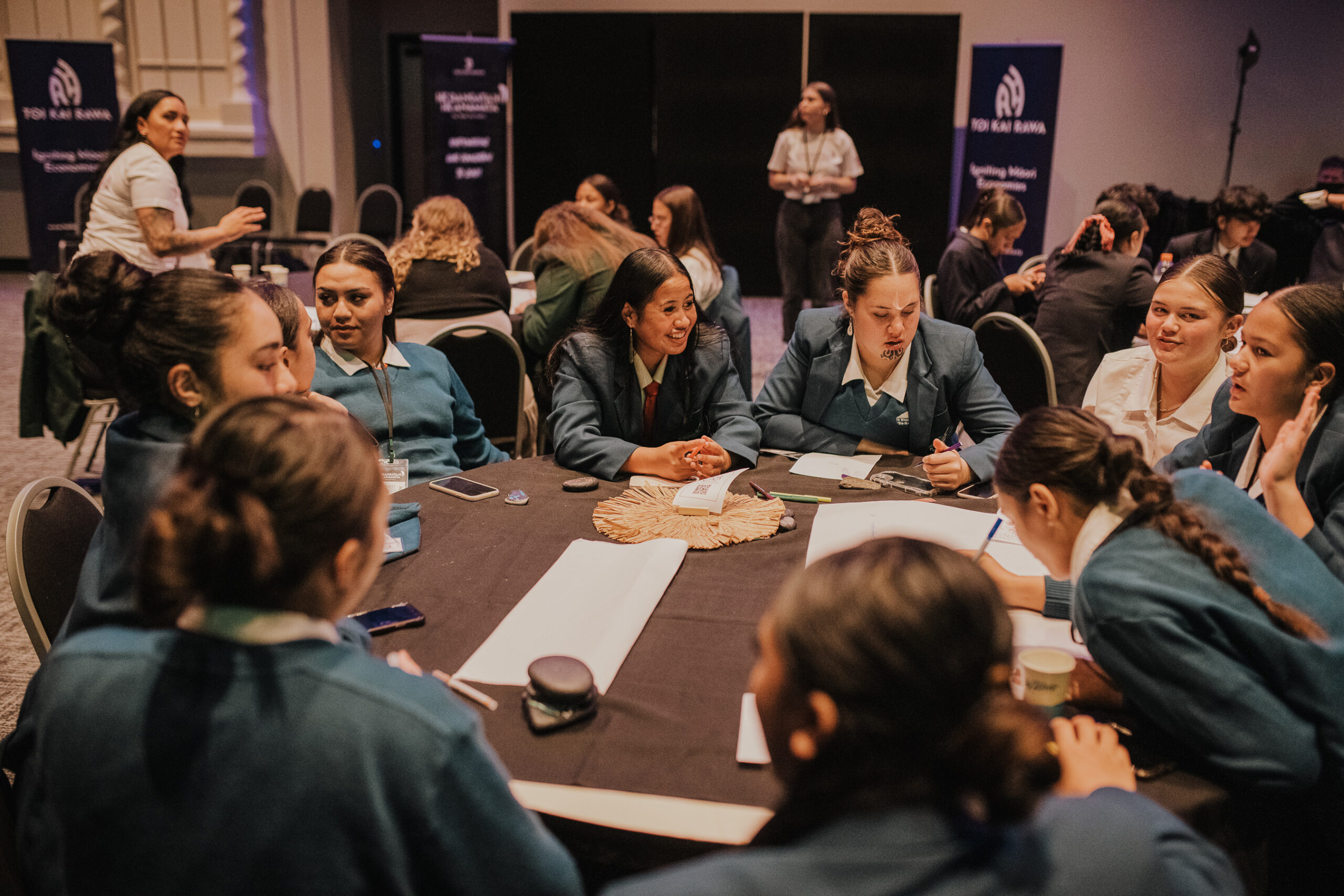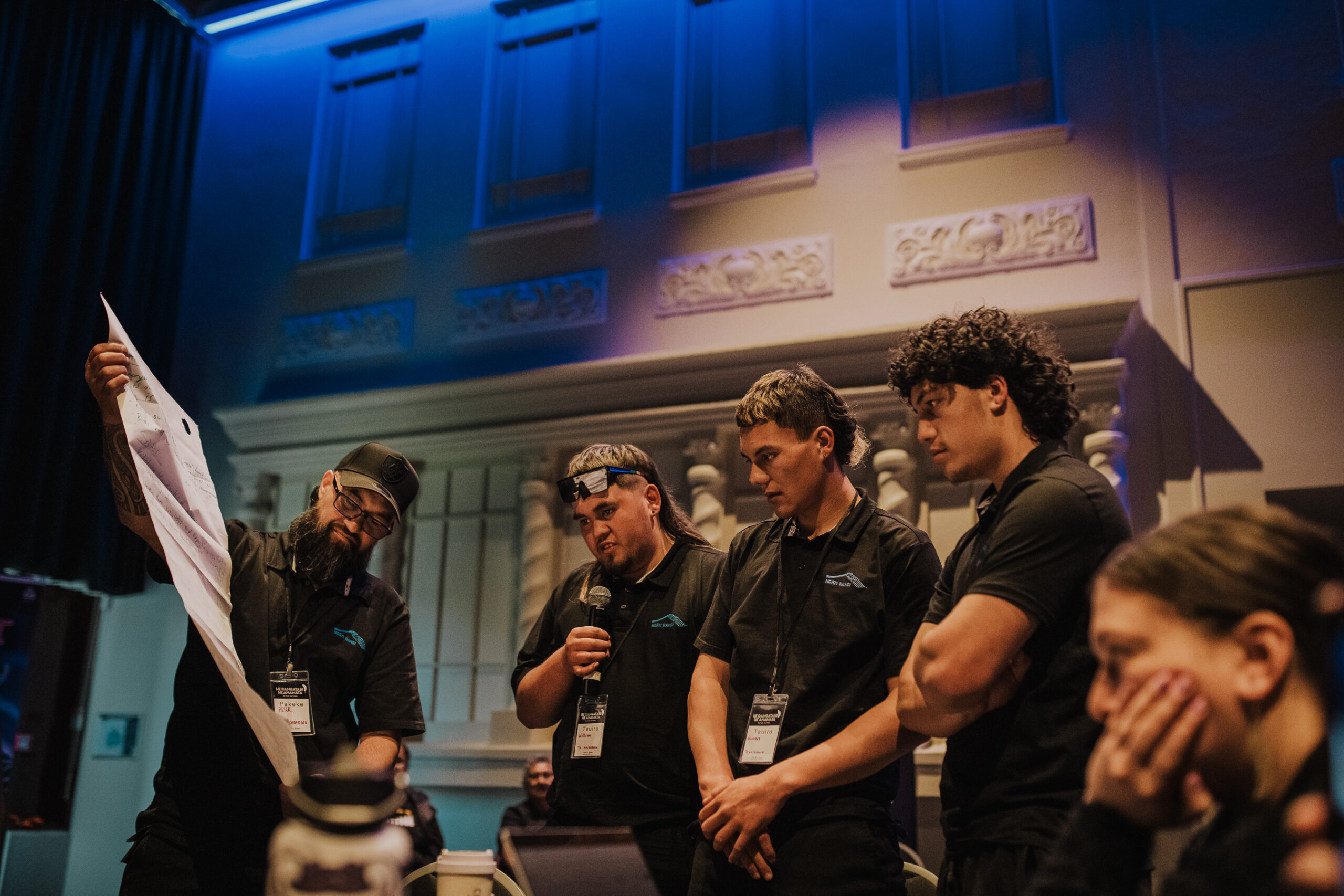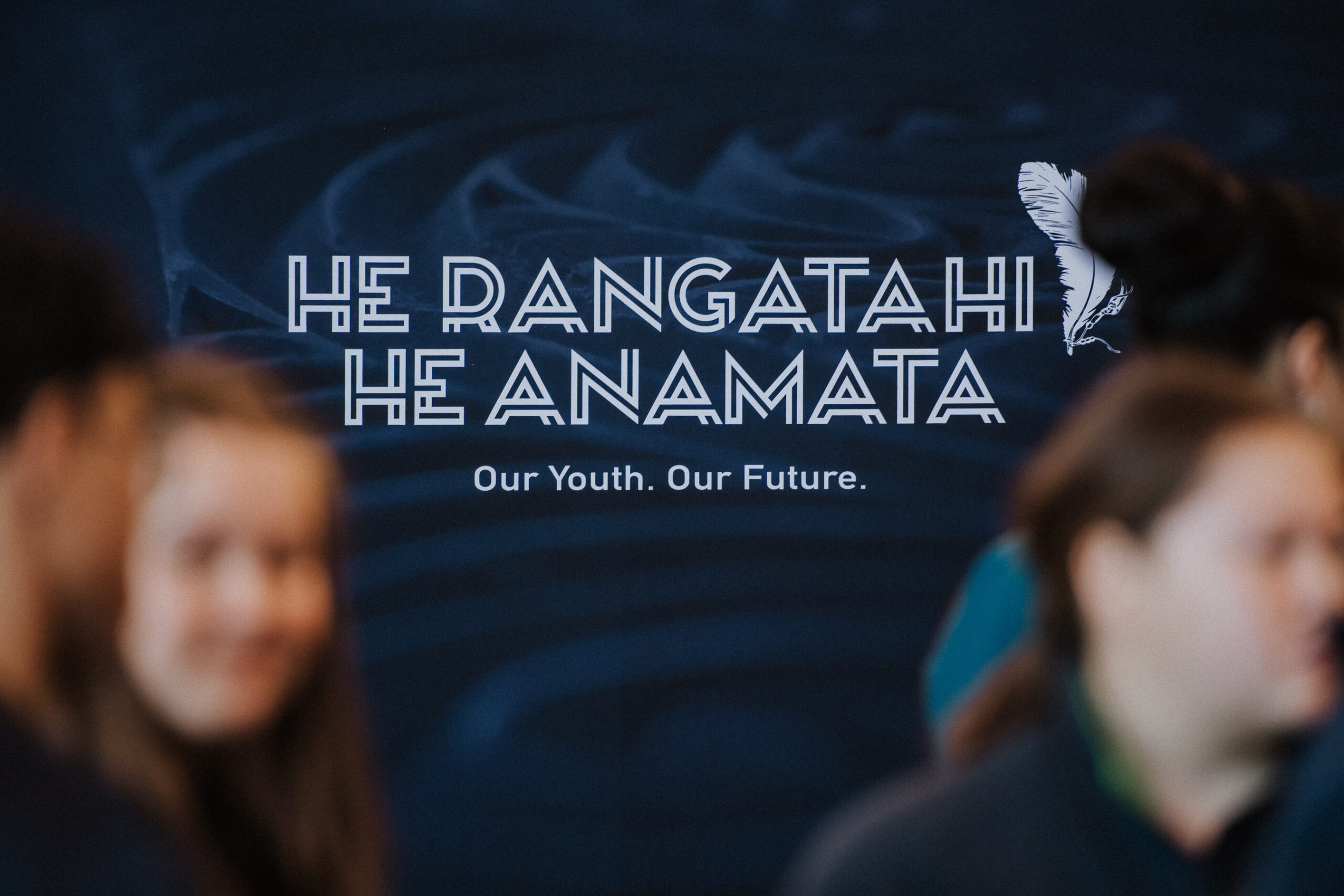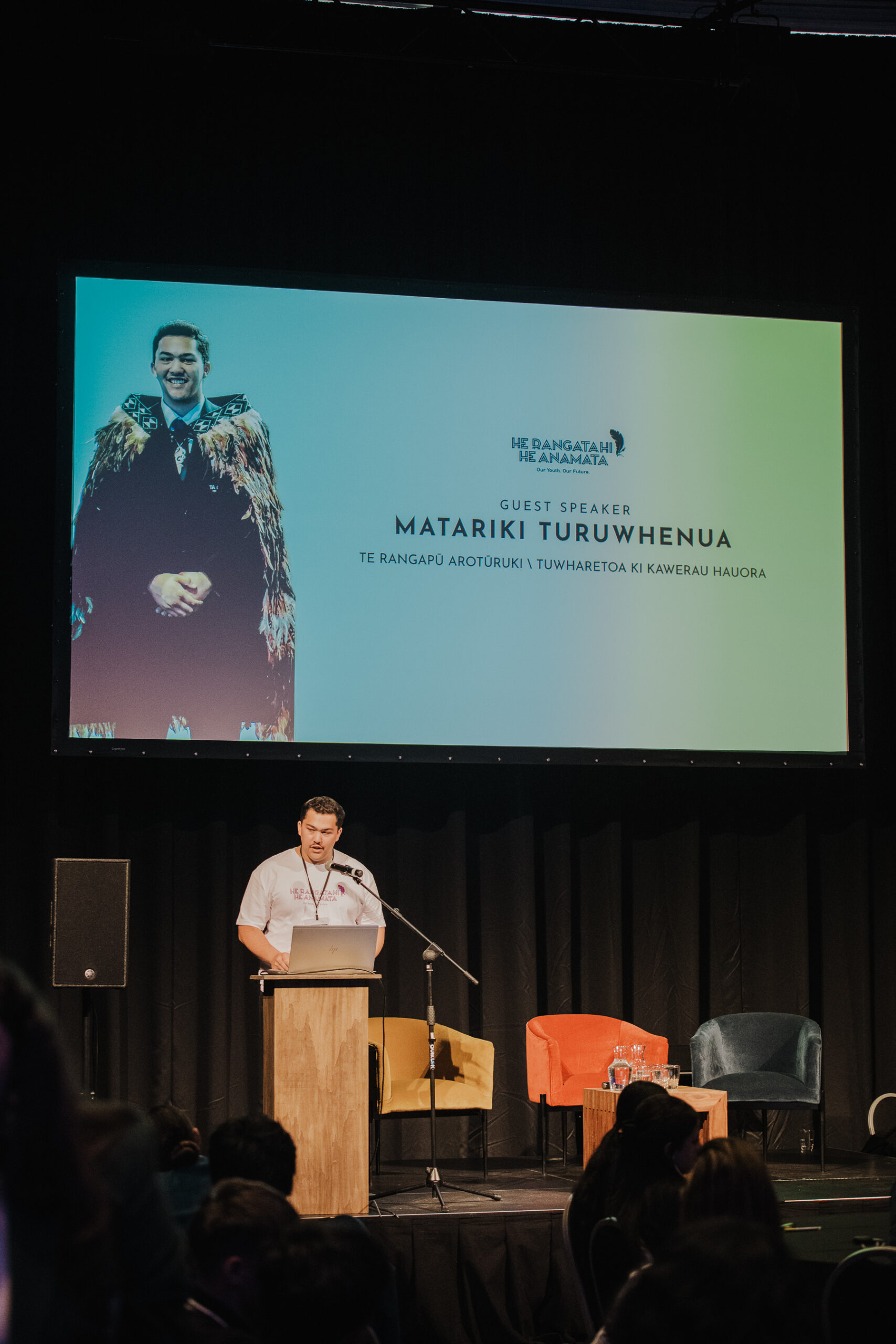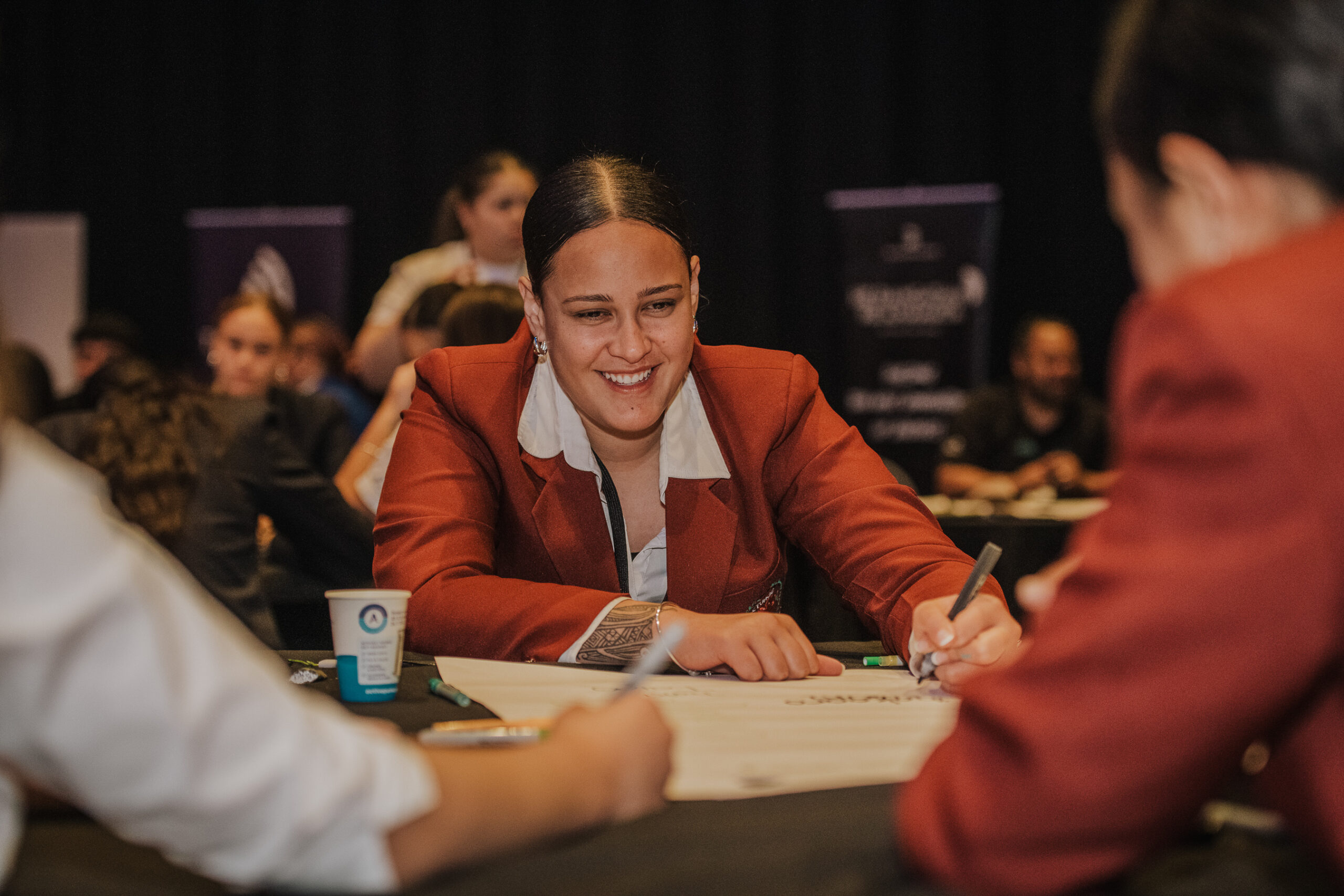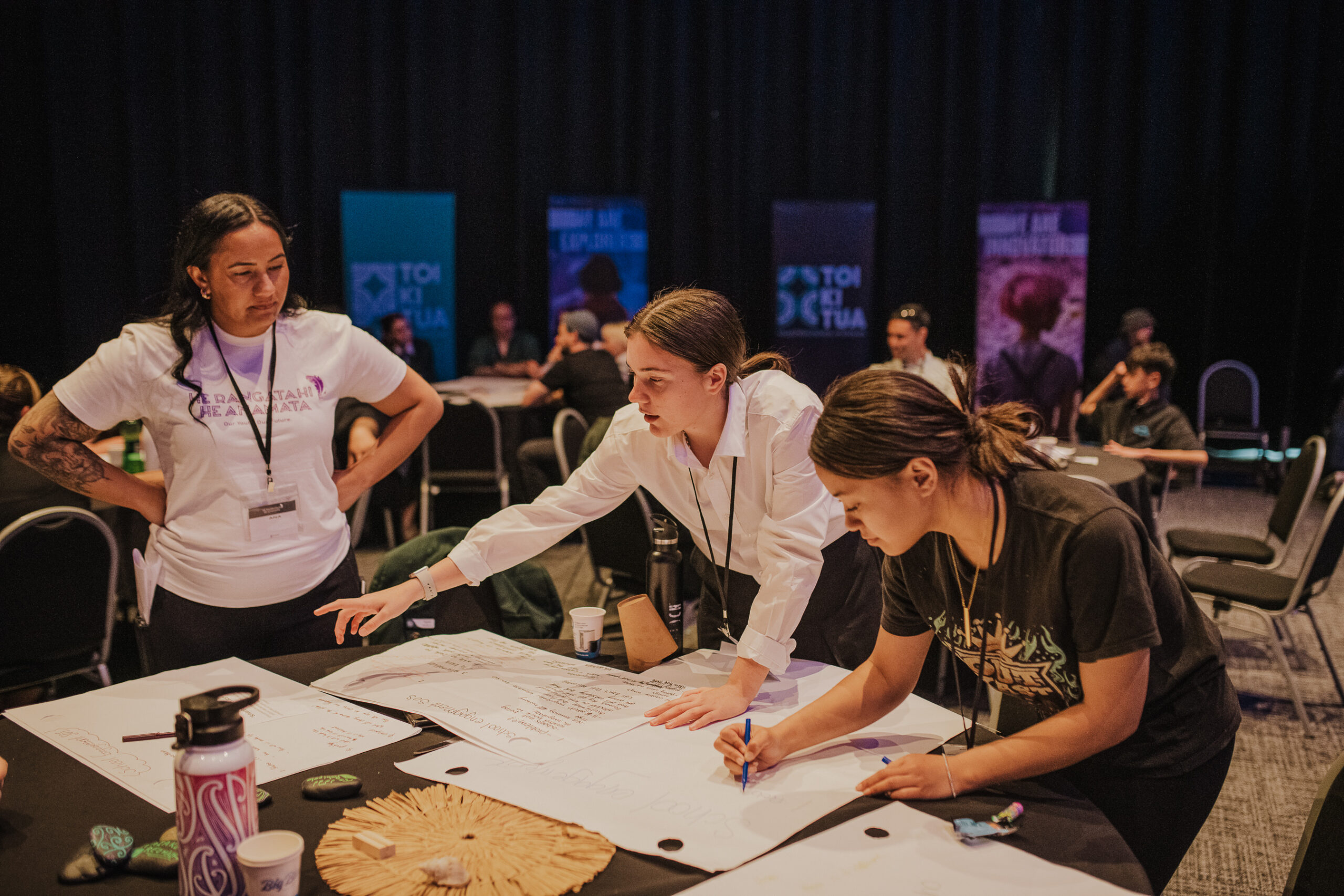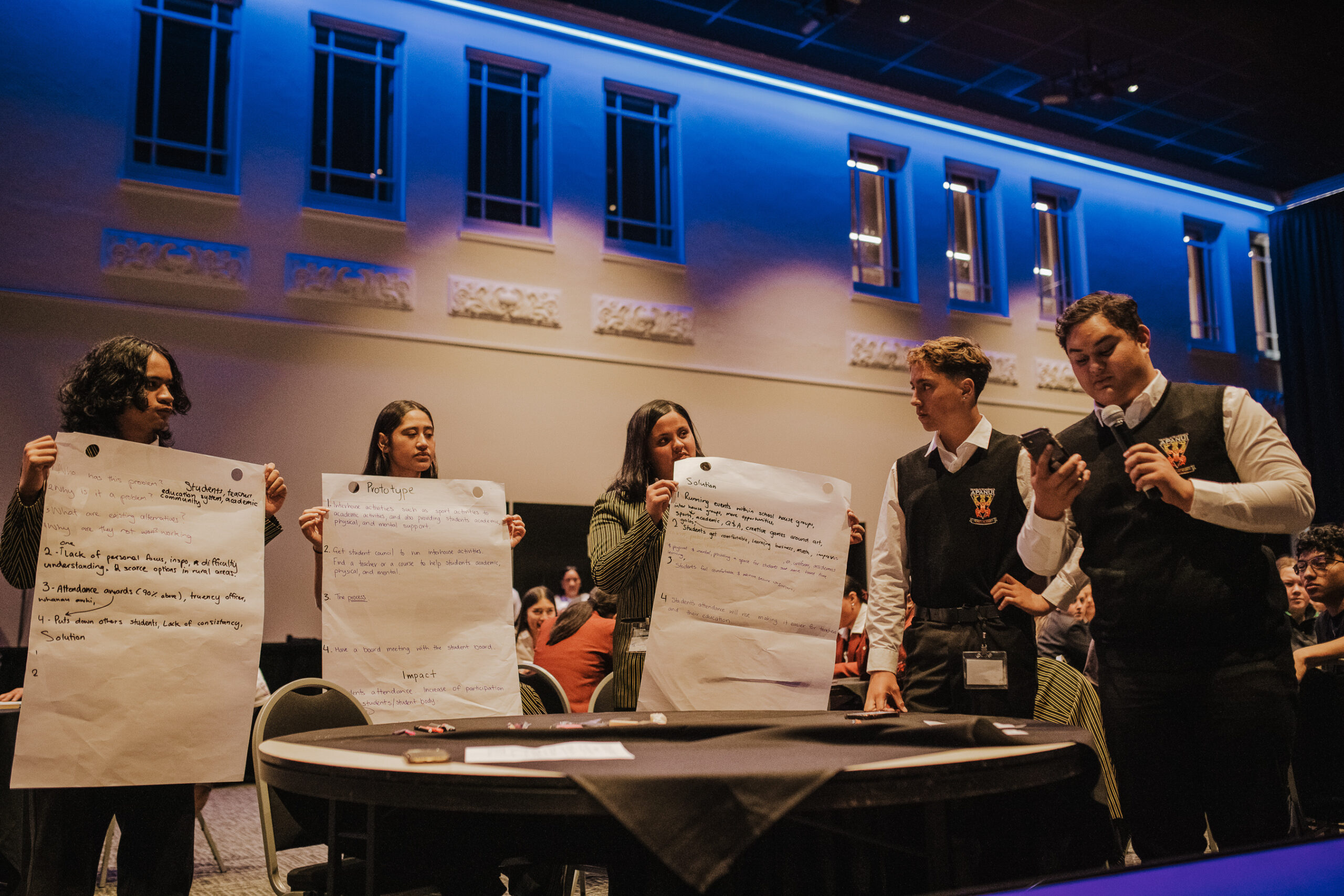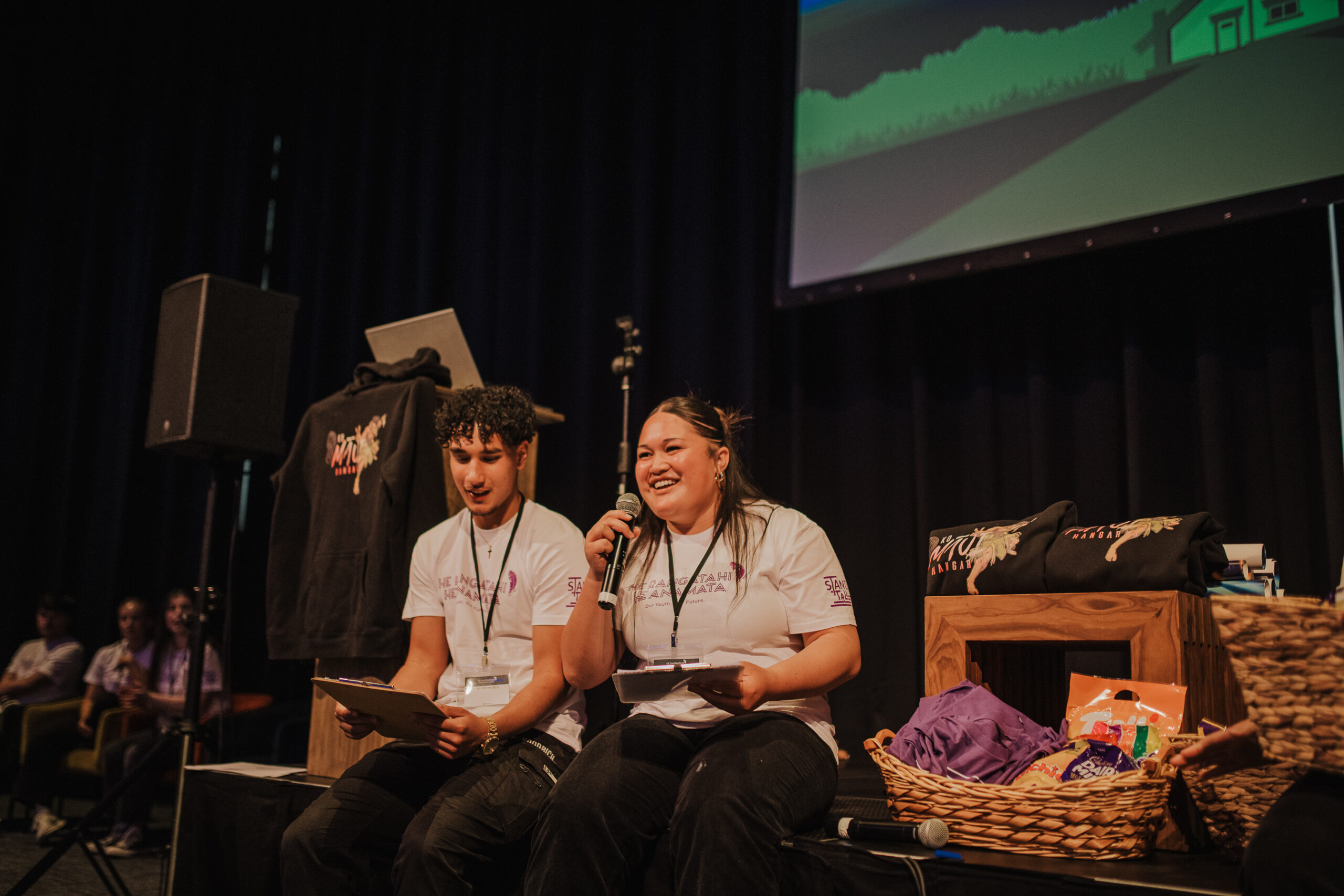Toi Kai Rawa
Pou Herenga Tangata Organisation Awardee 2024
Toi Kai Rawa works to strengthen the Māori economy by unlocking the potential of Māori youth through building future leaders.
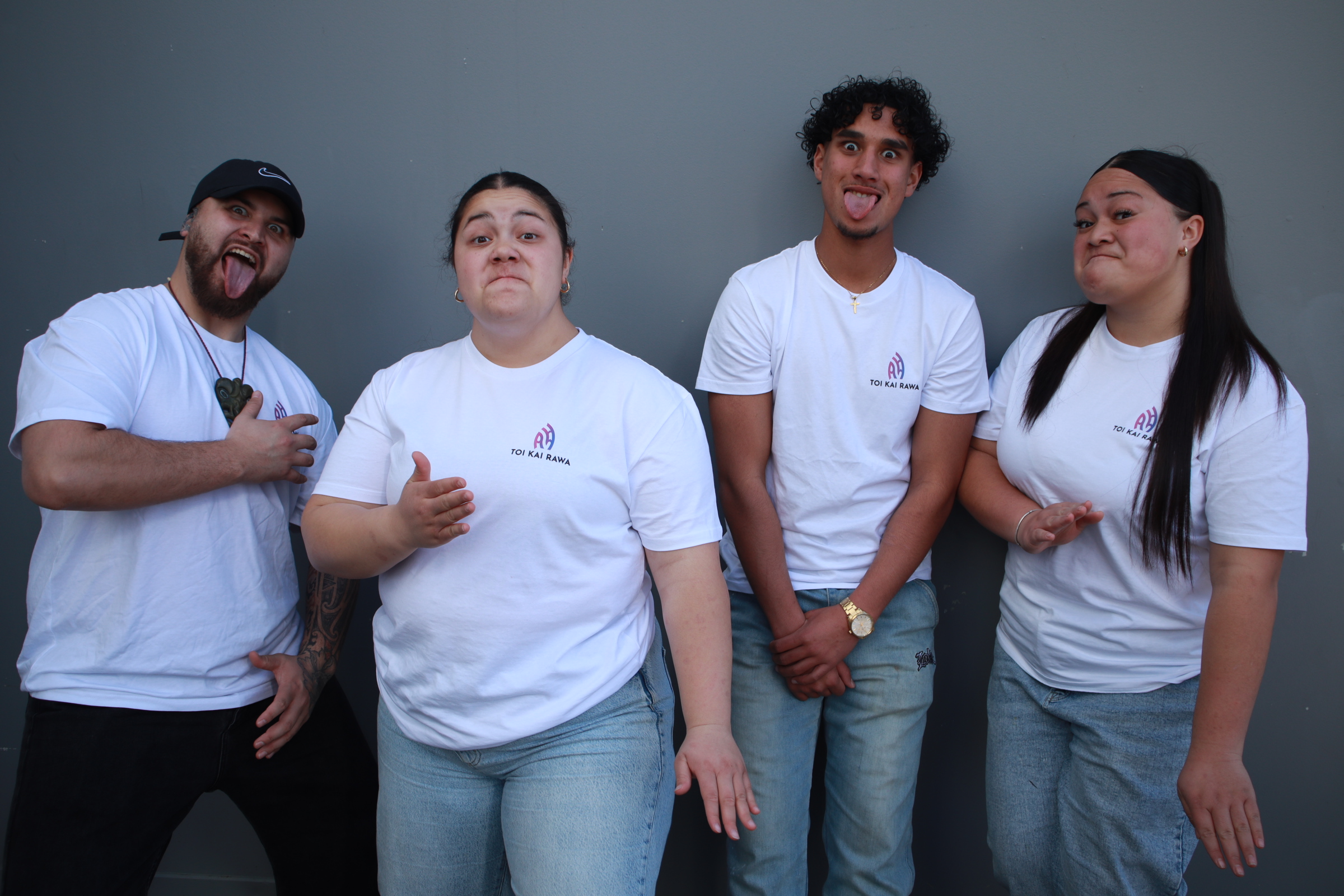 Toi Kai Rawa’s moemoeā…
Toi Kai Rawa’s moemoeā…
Toi Kai Rawa (TKR) works to strengthen the Māori economy by unlocking the potential of Māori youth through building future leaders.
TKR has established Te Rangapū Arotūruki (TRA). Our first rangatahi advisory group, TRA comprises four rangatahi, aged 15 -19, representing the communities of Taupō, Kawerau, and Tauranga. These young leaders bring regional representation and broad perspectives to their advisory role to co-design the content and format of He Rangatahi He Anamata.
He Rangatahi He Anamata (HRHA) is a Māori Youth Leadership Summit held annually in the Bay of Plenty, aimed at fostering leadership among rangatahi Māori. In its sixth year, the summit involves collaboration across industries, schools, and Māori organizations. Its strategic intent is to develop leadership skills, create pathways in education and employment, and empower rangatahi to contribute to regional prosperity.
The role of TRA is to co-design the HRHA summit, ensuring it aligns with the aspirations of their peers. TRA’s impact lies in shaping relevant leadership experiences, fostering governance and execution skills, and contributing to community-driven initiatives.
Partners supporting TRA and HRHA include Toi Kai Rawa, Stand Tall, industry leaders, educational institutions, and community organisations fostering leadership, entrepreneurship and digital skills among rangatahi.
In its first iteration, TRA will aim to:
- Review TKR’s existing survey findings and provide insights.
- Inform and drive the content and delivery at HRHA
- Activate generative relationships and networks
- Initiate and contribute to projects to build on
- Identify mentorship and Industry/Sector engagement opportunities
- Publish all findings (from the BOP to the world!)
Kaupapa update from Toi Kai Rawa
What were the major outcomes of this kaupapa?
Professional Development
TRA engaged with various stakeholders to learn more about efforts to improve education, career and workforce development for rangatahi in Aotearoa. Hui were arranged as a result of TRA expressing an interest in learning more about the limitations of NCEA and relevant education, as well as issues and barriers to Rangatahi Māori receiving quality career pathway support and education.
- Hāpai Tūhono – hosted by Lenny Andrews and Bryan Marsh
- Engaging with Rangatahi participating in the Mana Tūroa programme to understand aspirations and barriers to career pathways
- Navigating the cultural and political landscape for young Māori
- Education Partnership & Innovation Trust (EPIT) – hosted by Jane Treadwell-Hoye and Dr Louise Taylor
- Understanding challenges in the modern education system and innovative ways communities are addressing these across the country
Awards
‘He Rangatahi, He Anamata’ was awarded ‘Youth Programme of the Year 2024’ at the GENNZ Entrepreneurial Ecosystem Awards in Pōneke.
- TRA informed and drove key themes in content and delivery at HRHA
- TRA built internal and external relationships, blending their experiences of being rangatahi according to their unique circumstances.
- Programme delivery with Stand Tall and Downes Whānau, with each organisation committed to ongoing collaboration
HRHA delivered
- 11 schools/organisations
- 59 students
- New tagline: “Lead with identity, grow with purpose.”
- Event format templated for further iteration following TRA’s input
TRA self-organised participation included
- Leading ice-breaking activities
- Facilitating panel conversations with guests
- Public speaking on ‘Self-confidence’ – Ezekiel Downes
- Public speaking on ‘Pathways to Tertiary’ – Matariki Turuwhenua
- Judging and selecting three outstanding Rangatahi projects for future development
Successful delivery of HRHA 2024 with rangatahi-led implementation
Key objectives were achieved and exceeded re successful programme delivery and as first-time award recipients for HRHA, however greater attendance numbers were desired.
What were some of the challenges your kaupapa faced during its implementation?
Managing remote engagement
- With TRA members physically located across the region (Tauranga, Kawerau and Taupō), the team experienced difficulties coordinating regular, effective communication to maintain project momentum.
- This included utilising multiple platforms (email, phone, Slack, social media), securing consistent timeslots that didn’t clash with existing Rangatahi commitments, e.g. sports, extra-curricular, whānau and personal matters, coordinating event attendance and general contribution to tasks, activities and initiatives.
Facilitating group collaboration and involvement
Programme delivery and post-project feedback from TRA members revealed the following insights:
- Some struggled with adapting to their roles and managing comms
- Some found challenges in working with other members for the first time and balancing responsibilities, especially for those working full-time
Maintaining project momentum via a ‘voluntary participation’ approach
Although a fully paid role, the format of TRA was based on voluntary participation – engagement was encouraged, particularly for critical trips and events; however, was not compulsory. The idea was to support rangatahi in having autonomy regarding their contribution, according to the change they wished to see and drive themselves. This presented challenges in logistics and relationship-building, ensuring the group had fair representation and opportunity to shape the programme’s focus over time.
Self-funded, under-resourced
Tapuwae Roa were the sole financial contributors to both HRHA and TRA, with all event and project-related expenses (kai, travel, venue hire, rangatahi payment, etc.) covered by TKR, with strategic planning and critical delivery elements supported by Stand Tall. These funding limitations restricted the project scope and the ability to broaden engagement opportunities for rangatahi throughout the programme’s duration.
Rangatahi capability building
- Self-reflection feedback revealed that despite members feeling well-supported, wanted to contribute more by improving their communication, seeking help sooner, and prioritising engagement.
- Specific personal challenges like speaking up more confidently and managing schedules were areas they identified for growth.
How did this kaupapa benefit from the Pou Herenga Tangata Award?
This funding alleviated pressure on event delivery, helping to cover costs such as speaker koha and travel, kai (a rangatahi highlight!), activity resources, event photography, AV expenses and additional equipment (event hire materials).
What are your future plans for this kaupapa?
The TRA pilot programme’s success and direct influence of HRHA’s sixth summit provided a unique and tangible means to facilitate rangatahi voice in action. The desired approach for TKR involves:
- Developing a replicable programme and event model that can be shared and potentially co-developed with other communities and regions throughout Aotearoa
- Facilitate the ongoing development of HRHA project ideas as part of collaborative efforts between TKR Whai Mahi/Hihiko programmes and Stand Tall to build youth entrepreneurial capacity in the region
- Seek to position HRHA as a strategic ‘umbrella’ to support aligned community initiatives in collaboration with other programme providers, community and industry organisations and a broader rangatahi collective.
This might include:
- Leaner HRHA activations in regional activities such as mini-events, skills workshops, speaker sessions
- Generate resources, support networks and partnership agreements to provision rangatahi and related services to deliver kaupapa Māori youth initiatives
- Foster a tuakana/teina approach to peer development led by TRA alums and a 2025 intake or helping to establish parallel ‘branch’ groups in other locations
- “Hopes and Dreams”
- Rangatahi voice and action is channelled, visible, and amplified
- Autonomous youth leadership is activated and supported with impact measured to ensure future sustainability
- Youth-led community solutions are identified, mentored/developed and implemented to elevate the collective well-being of Māori

